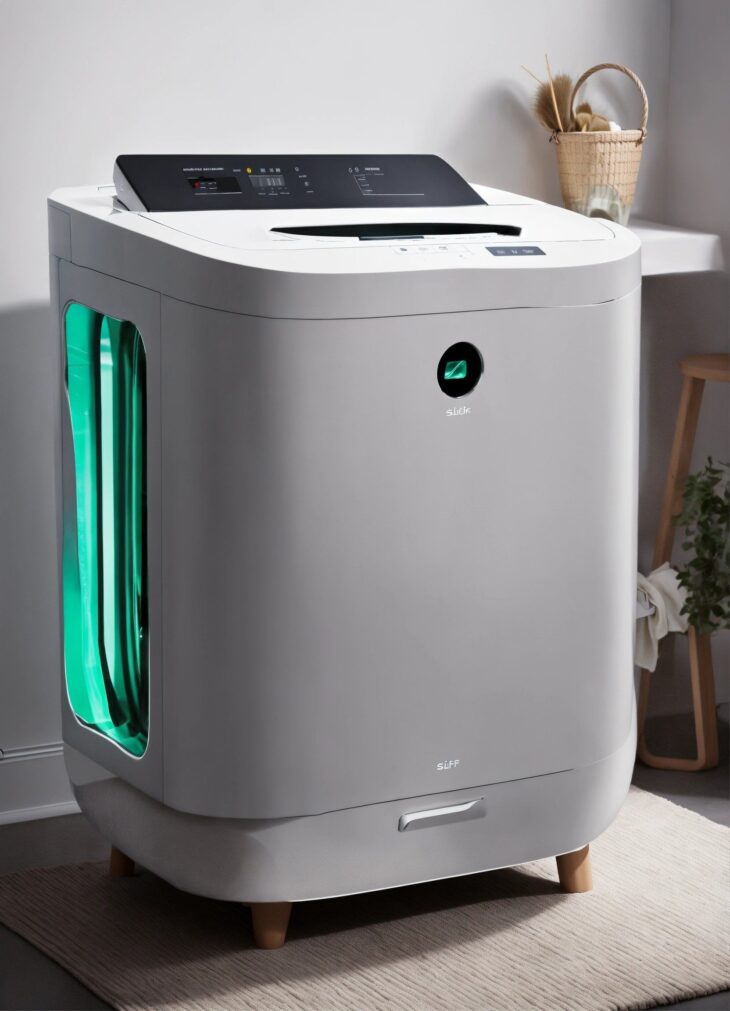Is Towel Warmer same as towel dryer? Unraveling the Mystery
Although they may appear similar at first, towel dryers and warmers have different functions.Although they both use heat to warm towels, the ways in which they accomplish this vary.By gradually heating towels, towel warmers primarily aim to provide warmth and comfort.They are available in several varieties, such as electric and hydronic variants, each with special advantages.While hydronic towel warmers connect to the central heating system in your house, electric towel warmers use internal heating components to provide warmth.Towel dryers, on the other hand, put an emphasis on effectively drying damp towels after usage.They use warm air to remove moisture from the fabric in a manner similar to conventional clothes dryers.In order to customize the drying process, towel dryers frequently have timers and heat settings that may be adjusted.
Introduction
Towel warmers and dryers: An introduction. It’s important to recognize the role these devices play in improving daily comfort.Because they provide a feeling of cleanliness and relaxation, towels are essential to our daily hygiene regimen.But perhaps heated towels offer more coziness and warmth than standard towels.This problem is addressed by towel warmers and dryers, which provide creative ways to improve the towel experience.These appliances are made to give towels warmth and dryness, giving your house an opulent, spa-like atmosphere.The warmth of a towel upon stepping out of the bath or shower offers another level of comfort.We explore the distinctions between towel warmers and dryers in this piece, shedding light on these crucial bathroom gadgets.
Towel Warmers: What are They?
High-tech appliances called towel warmers are made to make towels cozier and more voluminous.Among the various sizes and styles they are available in are wall-mounted racks and freestanding units.Electric or hydronic heating systems fuel these gadgets.Electric towel warmers heat the towel inside, whereas hydronic towel warmers work by connecting to your house’s central heating system.By gradually warming the towels, the heated rails or bars of the towel warmer create a pleasant and welcoming ambiance.In addition to bathrooms, towel warmers can be seen in opulent houses, hotels, and spas.They provide a useful way to periodically keep towels warm, dry, and sanitary.
Types and designs available in the market
Towel warmers come in a variety of forms and styles to accommodate a wide range of tastes and requirements in the market.Tissue warmers that are installed on the wall are a common option since they provide compact bathroom solutions.In addition to being conveniently portable, freestanding towel warmers offer positioning versatility.Warming your towels with hot water, hydronic towel warmers are connected to the central heating system in your house.For households without hydronic heating systems, electric towel warmers are a good option because they are self-contained, autonomous devices.Styles vary in terms of compatibility with various bathroom aesthetics, from sleek and modern to classic and traditional.Towel warmers vary in their forms; some have straight bars for maximum heating and towel storage, while others have curved or ladder-like shapes.
Towel Dryers: Unveiling the Mystery
Often hidden gems, towel dryers provide effective ways to remove moisture from wet towels after usage.These gadgets work by using warm air to remove moisture from clothing, much like conventional clothes dryers do.Different sizes and types are available to accommodate varying needs in terms of space and usage.Users may personalize the drying process with towel dryers thanks to their customizable heat settings and timings.Towel dryers only concentrate on drying towels quickly, as opposed to towel warmers, which put warmth and comfort first.Between usage, they keep towels dry and hygienic, which inhibits the formation of bacteria and mildew.Bathrooms, spas, gyms, and swimming pools all frequently have towel dryers since they are useful and convenient.
Pros and Cons of Towel Warmers
Towel warmers offer many benefits for increased comfort and convenience in your daily routine.One major perk is the luxury of undressing in a warm, silky towel after a shower or bath.Towel warmers keep towels dry and free of dampness, while also inhibiting the formation of bacteria and mildew.They can become more energy efficient through utilizing programmed timers and thermostatic controls to lower their electricity use.Because they come in a range of designs and styles, you may select a towel warmer that complements the design of your bathroom.Notwithstanding, there aren’t many drawbacks to consider.Initial costs for towel warmers might differ significantly according on the type and model you install and purchase.
Pros and Cons of Towel Dryers
In addition to being a handy addition to any bathroom or laundry room, towel dryers come with other benefits.They can effectively dry damp towels after usage, which saves time and work while doing laundry, which is one of the main advantages.Dry and sanitary towels between uses are the result of towel dryers, which help inhibit the formation of bacteria and mildew.They help customers can personalize the drying process to suit their preferences because they have programmable timings and heat settings.To fit a range of space constraints and decor tastes, towel dryers come in a variety of sizes and types.But, employing towel dryers has certain disadvantages that should be taken into account.If you choose a certain type and model of towel dryer, the initial cost of buying and installing it may be somewhat costly.
Towel Warmer vs. Towel Dryer: Key Differences
It’s important to recognize the main distinctions between towel warmers and dryers because they have different uses and provide different advantages.When stepping out of the shower or bathtub, towel warmers prioritize heating towels for comfort and relaxation, giving the impression of being at a spa.Towel dryers, on the other hand, are exclusively concerned with effectively drying damp towels after use, avoiding moisture accumulation and the development of bacteria and mildew.Towel dryers use heated air to remove moisture from the cloth, whereas towel warmers use internal heating components or hot water circulation to gently warm towels.While towel dryers have timers and heat settings that may be adjusted for personalized drying, towel warmers come in a variety of shapes and sizes, including electric and hydronic models.
Common Misconceptions
A common misperception concerning towel warmers and dryers stems from an ignorance of their features and advantages.There is a common belief that towel warmers use excessive energy, which raises the cost of power.To reduce electricity use, contemporary towel warmers are built with features like thermostatic controls and programmable timers.An other misperception is that towel dryers are exclusively functional in the winter.Towel dryers come extremely handy all year round since they keep towels dry and sanitary after every use, even though they are great for drying towels rapidly in colder climates.There are others who think towel warmers are hard to install and need to be done by professionals.
How to Properly Use a Towel Warmer
When a towel warmer is used correctly, it will warm your towels to the ideal temperature while providing the most comfort.First, as directed by the manufacturer, make sure the towel warmer is firmly plugged in or attached to the heating system in your house.Next, choose your preferred temperature on the towel warmer and modify it based on your taste and the kind of towels you want to warm up.After the towel warmer reaches the appropriate temperature, arrange your towels evenly over the heated bars or rails, making sure there is enough room between them to provide the best possible heating.After the suggested amount of time—usually 15 to 30 minutes, depending on the towels’ thickness and material—leave the towels on the warmer.To avoid overheating and wasting electricity, don’t leave towels on the warmer for long periods of time.


Amazing
5 star
Gd
impressive
Amazing
[…] the quest for the perfect towel-drying experience, the choice between hooks and rails has sparked an ongoing debate. Both options have […]